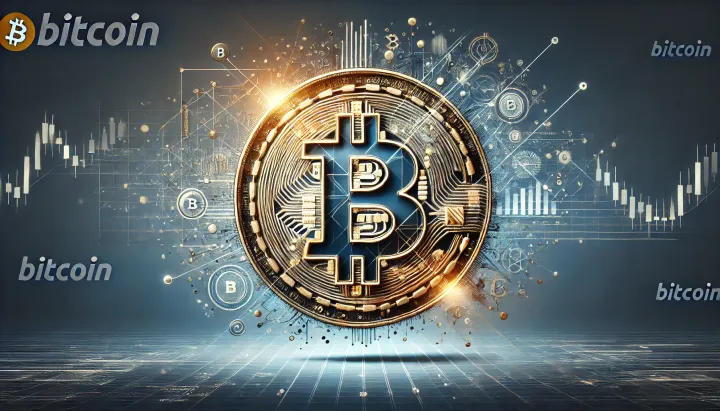Federal Reserve Origins and Bitcoin Resilience
The April 11, 2025 episode of Once Bitten features Julian Figueroa and Peruvian Bull dissecting the covert origins and expansion of the Federal Reserve alongside its far-reaching impacts.

- My 'briefing notes' summarize the content of podcast episodes; they do not reflect my own views.
- They contain (1) a summary of podcast content, (2) potential information gaps, and (3) some speculative views on wider Bitcoin implications.
- Pay attention to broadcast dates (I often summarize older episodes)
- Some episodes I summarize may be sponsored: don't trust, verify, if the information you are looking for is to be used for decision-making.
Summary
The April 11, 2025 episode of Once Bitten features Julian Figueroa and Peruvian Bull dissecting the covert origins and expansion of the Federal Reserve alongside its far-reaching impacts. The broadcast links these historical developments to Bitcoin’s promise of decentralization and self-custody as a countermeasure. It underscores the urgent need for accountability, transparency, and educational reform in monetary governance.
Take-Home Messages
- Central Bank Overreach: The Federal Reserve’s expansive power challenges economic stability and transparency.
- Propaganda Influence: Historical manipulation via coordinated campaigns has deeply shaped public perceptions of monetary policy.
- Accountability Deficit: Persistent gaps in oversight call for robust reforms to monitor central banking activities.
- Bitcoin as a Countermeasure: Decentralized, self-custody practices present a viable alternative to centralized financial control.
- Educational Transformation: Reforming academic discourse on monetary systems is critical for empowering informed public debate.
Overview
The episode outlines the covert birth and evolution of the Federal Reserve, with detailed accounts of secret meetings on Jackal Island and the orchestrated Aldrich Plan. Julian Figueroa and Peruvian Bull explain how these events laid the groundwork for a system that expanded far beyond its initial mandate. They cite historical maneuvers that enabled powerful financial interests to control monetary policy.
The discussion emphasizes the deliberate use of propaganda and the manipulation of economic narratives to legitimize the Federal Reserve’s growing authority. Figueroa and Peruvian Bull describe how alliances among influential banking families and government entities have shaped modern policy frameworks.
Figueroa and Peruvian Bull draw parallels between these historical practices and modern challenges, noting the lack of accountability in central banking. They highlight the distortion of economic metrics and the erosion of public trust through opaque policy decisions.
Switching focus, the broadcast presents Bitcoin as a resilient alternative to fiat systems controlled by central banks. Figueroa and Peruvian Bull underscore the importance of self-custody and decentralization in protecting individual financial sovereignty. They advocate for leveraging Bitcoin’s inherent properties to counteract future regulatory overreach.
Stakeholder Perspectives
- Central Bankers: Likely to defend the current system by emphasizing its role in maintaining financial stability despite calls for increased transparency.
- Government Regulators: Concerned with balancing monetary policy objectives with demands for accountability and public trust.
- Academic Economists: Split between traditional theories supporting central banking and emerging critiques of its opaque practices.
- Bitcoin Advocates: Emphasize decentralization and self-custody as essential to counteract institutional overreach.
- General Public: Growing skepticism toward fiat systems fuels interest in alternative, user-controlled monetary models.
Implications and Future Outlook
The discussion implies that unchecked central bank expansion can exacerbate economic inequality and undermine public trust. Without reforms that enforce accountability, these risks may intensify, prompting further social and political repercussions. This scenario calls for decisive action from both policymakers and informed citizens.
Bitcoin’s decentralized nature emerges as a strategic counterbalance to these trends. By embracing self-custody and alternative financial practices, users can safeguard their assets against potential future regulatory seizures. Such measures offer a framework for broader economic resilience and individual empowerment.
The interviewees anticipate an ongoing shift in monetary paradigms, driven by technological innovation and growing demand for transparency. This transformation may redefine the roles of traditional institutions, emphasizing decentralization and grassroots economic participation. The future outlook emphasizes proactive engagement and educational reform as keys to navigating these changes.
Some Key Information Gaps
- What mechanisms can be implemented to ensure accountability in the Federal Reserve's expanding mandate? This question targets systemic risks related to unchecked central bank power and seeks pathways for regulatory reform.
- How can Bitcoin protocols be safeguarded against sudden regulatory or governmental asset seizures? This inquiry addresses the potential threat of future state interventions resembling historic 6102 actions.
- What best practices can promote widespread adoption of self-custody for Bitcoin among users? Focusing on decentralization, this question explores strategies to reduce reliance on centralized financial institutions.
- How do central banking practices contribute to economic inequality at the grassroots level? This question examines the direct social impacts of policies like aggressive money printing.
- What educational reforms are needed to challenge entrenched narratives in academic monetary systems? Addressing this gap could reshape public understanding and drive long-term cultural change.
Broader Implications for Bitcoin
Central Bank Governance Reform
The historical analysis suggests that long-standing, opaque practices in central banking could necessitate sweeping reforms to restore public trust. A reformed governance structure may lead to more transparent monetary policy and a realignment of accountability mechanisms. Such reforms could also shift public discourse towards a more balanced view of central banking powers.
Decentralized Financial Sovereignty
The broadcast highlights Bitcoin’s potential to offer an alternative framework that empowers individuals through decentralization and self-custody. This approach might reduce dependence on centralized institutions and mitigate risks associated with government overreach. As decentralized technologies mature, they could fundamentally alter the landscape of monetary transactions and asset protection.
Educational Transformation in Monetary Policy
The entrenched academic narratives supporting current monetary systems may require significant revision to incorporate critiques of central bank practices. Updating educational curricula can foster a more critical understanding of how monetary policy impacts society. A more informed populace is likely to drive demand for greater transparency and reform.
Socioeconomic Resilience Through Alternative Systems
Exploring alternative economic models such as a Bitcoin standard can enhance resilience against financial crises induced by central bank mismanagement. Embracing digital currencies may provide a pathway to mitigate inequality and empower local communities. This broader adoption could lead to a more diversified and stable economic landscape.



Comments ()